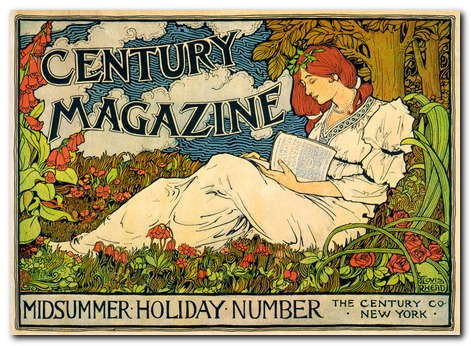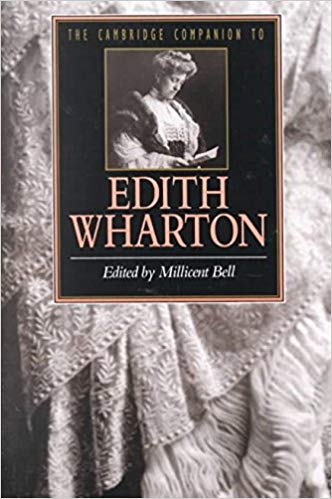tutorial, commentary, study resources, plot, and web links
Autres Temps first appeared in the Century Magazine in July— 1911. It was originally published under a different (and more obvious) title of Other Times, Other Manners. The story was subsequently included in Edith Wharton’s collection of short fiction, Xingu published in 1916.
Autres Temps – critical commentary
Europe and America
The story has elements of what Edith Wharton’s friend and fellow author Henry James called the ‘International Theme’. Although Autres Temps is not concerned with tensions between Europe and America, it is significant that the geographic axis of the story is Florence in Italy and New York in America.
Mrs Lidcote has retreated to live in Europe following her own social disgrace, which we are led to believe is a marital rupture and elopement with another man. She has been forced into this dis-location because of the social opprobrium her actions have brought upon her in very conservative nineteenth century American upper-class society.
It was very common for people in America and England to retreat to the more tolerant locations of European cities following any sort of scandal or disgrace – or even for reasons of financial hardship. As late as 1897 Oscar Wilde had fled Britain to live in France following his trial and imprisonment following his failed libel case against the Marquis of Queensbury.
Mrs Lidcote is confronted with the manners and morals of the ‘new’ New York after exposure to her daughter and friends, rather than the ‘old’ New York in which she had been raised. Symbolically, she retreats to Florence where she can at least be sure of consistency.
It is worth noting that her retreat is not caused by any shock she feels at their apparently laissez faire attitude to divorce and re-marriage, but because they have embraced their own new freedoms without examining or calling into question examples of censure in the past. As she puts it very pithily – ‘society is much too busy to revise its own judgements’.
What has she done?
Mrs Lidcote has been living in exile in Florence for eighteen years, ostracised by fashionable New York society because of a former indiscretion. So what exactly did she do? The text does not make this entirely explicit – but there are certain clues.
First, she fears that Leila might make the same mistake that she made. Leila has divorced one husband an married another. In Mrs Lidcote’s eyes she has gambled her social reputation for the sake of personal happiness – which is what we take it Mrs Lidcote did.
But Mrs Lidcote still has her married name, from which we can infer that she left her husband for another man – but did not get married to him. Furthermore, she mentions how social ostracism can have very damaging consequences:
She had had what she wanted, but she had had to pay too much for it. She had had to pay the last bitterest price of learning that love has a price: that it is worth so much and no more. She had known the anguish of watching the man she loved discover this first, and of reading the discovery in his eyes.
Since these events were ‘a long time past’ and it appears that she has been living alone in Florence, there is an inference that her lover capitulated to social convention and abandoned their relationship, leaving her doubly isolated.
These were all live issues for Edith Wharton herself. She had begun an affair with Times correspondent W. Morton Fullerton in 1908, moved to live in France in 1911 (the same year at Autres Temps was published) and divorced her husband Edward (Teddy) Wharton the following year.
Sheep’s clothing?
Beset as she is by a selfish and ambitious daughter, dubious relatives (Suzy Suffern, who dresses in dead people’s clothes) and a society which shows no sympathy to her plight, Mrs Lidcote has yet one supporter who offers loyalty and understanding. Franklin Ide has been a friend and admirer for many years, and he reassures her that times and attitudes have changed – “It’s all right”, he repeats, and seems to be correct. He goes out of his way to renew the appeal he wishes to make to her (which is not made explicit).
But when examined more closely, he turns out to be a empty shell. All his appeals to Mrs Lidcote are made in private, outside the society to which they both belong – on holiday in Switzerland and in the New York hotel room where she stays on arrival and departure. And of course when she finally accepts the idea of socialising with some of her contemporaries, he is exposed as a conventionalist, because he is embarrassed and does not want to be seen with her. So at best he is fraud, but at worst he is a snake in the grass who all the time has been proposing an illicit relationship.
So Mrs Lidcote triumphs morally over those who are trying to decieve her – her daughter Leila and her ‘admirer’ Franklin Ide. She reduces them both to a state of acute confusion (they both blush) by forcing them to confront the truth of their hypocrisy and double standards. But she has spent the entire story cooped up in rooms – at the hotel, and in her daughter’s house – and it has to be said that in the end she is going back to a state of confinement in her Florentine apartment. She is ‘in the right’, but there is still a price to pay.
Autre Temps – study resources
![]() The New York Stories – New York Review Books – Amazon UK
The New York Stories – New York Review Books – Amazon UK
![]() The New York Stories – New York Review Books – Amazon US
The New York Stories – New York Review Books – Amazon US
![]() Edith Wharton Stories 1891-1910 – Norton Critical – Amazon UK
Edith Wharton Stories 1891-1910 – Norton Critical – Amazon UK
![]() Edith Wharton Stories 1891-1910 – Norton Critical – Amazon US
Edith Wharton Stories 1891-1910 – Norton Critical – Amazon US
![]() Autres Temps – eBook format at Project Gutenberg
Autres Temps – eBook format at Project Gutenberg
![]() A Historical Guide to Edith Wharton – Amazon UK
A Historical Guide to Edith Wharton – Amazon UK
![]() The Cambridge Introduction to Edith Wharton – Amazon UK
The Cambridge Introduction to Edith Wharton – Amazon UK
Autres Temps – story synopsis
Part I. Mrs Lidcote is returning to America from Florence, where she has been living for eighteen years. She has received the news that her daughter Leila has divorced her husband Horace Pursh and married Wilbour Barkley. She fears that Leila will be ostracised by New York society as she was herself in the past for a similar social indiscretion. On board the Utopia she is snubbed by ambassador’s wife Mrs Lorrin Boulger, but is reassured by an old friend Franklin Ide, who tells her that everything will be all right.
Part II. She is met in New York by her cousin Suzy Suffern who reveals that the old social conventions of upper-class society have been replaced by more liberal attitudes. There is no longer any need for her to fear social censure. Mrs Lidcote has some years before received hints of a romantic kind from Franklin Ide, but she has not taken them up because she thought her negative reputation would damage his happiness (as it had done in her previous history). Now that times have changed and Leila doesn’t need her mother’s protection any more, Franklin Ide renews his expressions of interest.
Part III. Leila has house guests when Mrs Lidcote arrives there, and she keeps her mother at a distance emotionally whilst expressing a exaggerated concern for her welfare. Mrs Lidcote reflects on the sacrifices she had to make for her chance of love and happiness, compared with the ease with which Leila takes everything for granted.
Part IV. Mrs Lidcote is urged to stay in her guest room and rest – because it becomes apparent that Leila has invited older guests to dinner. They include Mrs Lorrin Boulger, because Leila wants to secure a diplomatic appointment for her new husband in Italy. Mrs Lidcote is offended by this treatment, sees a challenge, at first refuses to stay in her room.
Part V. Leila arrives in haste, trying to prevent her mother appearing at dinner. Once again she pretends an overwhelming concern for her mother’s comfort – but Mrs Lidcote exposes her deviance and hypocrisy, causing her deep embarrassment. Having triumphed in this way, Mrs Lidcote then declares that she will stay in her room until all the guests have departed after the weekend.
Part VI. The following Monday she announces that she is returning immediately to Florence. Franklin Ide intercepts her in her New York hotel. She explains to him how shabbily she was treated. He tries to persuade her she is wrong and offers himself to her again, but when she puts him to the concrete test of meeting some mutual friends together, he is deeply embarrassed and unable to face the social challenge.
Principal characters
| Mrs Lidcote | a middle-aged American divorcee and expatriate |
| Leila | her recently divorced and re-married daughter |
| Suzy Suffern | her cousin, who dresses in mourning |
| Mrs Lorrin Boulger | the wife of an American ambassador |
| Franklin Ide | old friend and suitor to Mrs Lidcote |
Video documentary
Further reading
Louis Auchincloss, Edith Wharton: A Woman of her Time, New York: Viking, 1971,
Elizabeth Ammons, Edith Wharton’s Argument with America, Georgia: University of Georgia Press, 1982, pp.222. ISBN: 0820305138
Janet Beer, Edith Wharton (Writers & Their Work), New York: Northcote House, 2001, pp.99, ISBN: 0746308981
Millicent Bell (ed), The Cambridge Companion to Edith Wharton, Cambridge: Cambridge University Press, 1995, pp.232, ISBN: 0521485134
Alfred Bendixen and Annette Zilversmit (eds), Edith Wharton: New Critical Essays, New York: Garland, 1992, pp.329, ISBN: 0824078489
Eleanor Dwight, Edith Wharton: An Extraordinary Life, New York: Harry N. Abrams, 1994, ISBN: 0810927950
Gloria C. Erlich, The Sexual Education of Edith Wharton, California: University of California Press, 1992, pp.223, ISBN: 0520075838
Susan Goodman, Edith Wharton’s Women: Friends and Rivals, UPNE, 1990, pp.220, ISBN: 0874515246
Irving Howe, (ed), Edith Wharton: A collection of Critical Essays, London: University of North Carolina Press, 1986,
Jennie A. Kassanoff, Edith Wharton and the Politics of Race, Cambridge: Cambridge University Press, 2004, pp.240, ISBN: 0521830893
Hermione Lee, Edith Wharton, London: Vintage, new edition 2008, pp.864, ISBN: 0099763516
R.W.B. Lewis, Edith Wharton: A Biography, New York: Harper and Rowe, 1975, pp.592, ISBN: 0880640200
James W. Tuttleton (ed), Edith Wharton: The Contemporary Reviews, Cambridge: Cambridge University Press, 1992, pp.586, ISBN: 0521383196
Candace Waid, Edith Wharton’s Letters from the Underworld, London: University of North Carolina Press, 1991,
Sarah Bird Wright, Edith Wharton A to Z: The Essential Reference to Her Life and Work, Fact on File, 1998, pp.352, ISBN: 0816034818
Cynthia Griffin Wolff, A Feast of Words: The Triumph of Edith Wharton, New York: Perseus Books, second edition 1994, pp.512, ISBN: 0201409186
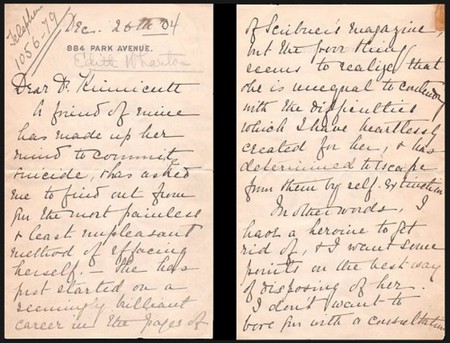
Edith Wharton’s writing
Other works by Edith Wharton
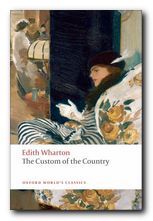 The Custom of the Country (1913) is Edith Wharton’s satiric anatomy of American society in the first decade of the twentieth century. It follows the career of Undine Spragg, recently arrived in New York from the midwest and determined to conquer high society. Glamorous, selfish, mercenary and manipulative, her principal assets are her striking beauty, her tenacity, and her father’s money. With her sights set on an advantageous marriage, Undine pursues her schemes in a world of shifting values, where triumph is swiftly followed by disillusion. This is a study of modern ambition and materialism written a hundred years before its time.
The Custom of the Country (1913) is Edith Wharton’s satiric anatomy of American society in the first decade of the twentieth century. It follows the career of Undine Spragg, recently arrived in New York from the midwest and determined to conquer high society. Glamorous, selfish, mercenary and manipulative, her principal assets are her striking beauty, her tenacity, and her father’s money. With her sights set on an advantageous marriage, Undine pursues her schemes in a world of shifting values, where triumph is swiftly followed by disillusion. This is a study of modern ambition and materialism written a hundred years before its time.
![]() Buy the book from Amazon UK
Buy the book from Amazon UK
![]() Buy the book from Amazon US
Buy the book from Amazon US
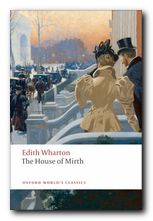 The House of Mirth (1905) is the story of Lily Bart, who is beautiful, poor, and still unmarried at twenty-nine. In her search for a husband with money and position she betrays her own heart and sows the seeds of the tragedy that finally overwhelms her. The book is a disturbing analysis of the stifling limitations imposed upon women of Wharton’s generation. In telling the story of Lily Bart, who must marry to survive, Wharton recasts the age-old themes of family, marriage, and money in ways that transform the traditional novel of manners into an arresting modern document of cultural anthropology.
The House of Mirth (1905) is the story of Lily Bart, who is beautiful, poor, and still unmarried at twenty-nine. In her search for a husband with money and position she betrays her own heart and sows the seeds of the tragedy that finally overwhelms her. The book is a disturbing analysis of the stifling limitations imposed upon women of Wharton’s generation. In telling the story of Lily Bart, who must marry to survive, Wharton recasts the age-old themes of family, marriage, and money in ways that transform the traditional novel of manners into an arresting modern document of cultural anthropology.
![]() Buy the book from Amazon UK
Buy the book from Amazon UK
![]() Buy the book from Amazon US
Buy the book from Amazon US
Edith Wharton – web links
Edith Wharton at Mantex
Biographical notes, study guides to the major novels, tutorials on the shorter fiction, bibliographies, critiques of the shorter fiction, and web links.
![]() The Short Stories of Edith Wharton
The Short Stories of Edith Wharton
This is an old-fashioned but excellently detailed site listing the publication details of all Edith Wharton’s eighty-six short stories – with links to digital versions available free on line.
Edith Wharton at Gutenberg
Free eTexts of the major novels and collections of stories in a variety of digital formats – also includes travel writing and interior design.
Edith Wharton at Wikipedia
Full details of novels, stories, and travel writing, adaptations for television and the cinema, plus web links to related sites.
The Edith Wharton Society
Old but comprehensive collection of free eTexts of the major novels, stories, and travel writing, linking archives at University of Virginia and Washington State University.
The Mount: Edith Wharton’s Home
Aggressively commercial site devoted to exploiting The Mount – the house and estate designed by Edith Wharton. Plan your wedding reception here.
Edith Wharton at Fantastic Fiction
A compilation which purports to be a complete bibliography, arranged as novels, collections, non-fiction, anthologies, short stories, letters, and commentaries – but is largely links to book-selling sites, which however contain some hidden gems.
Wharton’s manuscripts
Archive of Wharton holdings at the Beinecke Rare Book and Manuscript Library
© Roy Johnson 2014
Edith Wharton – short stories
More on Edith Wharton
More on short stories
